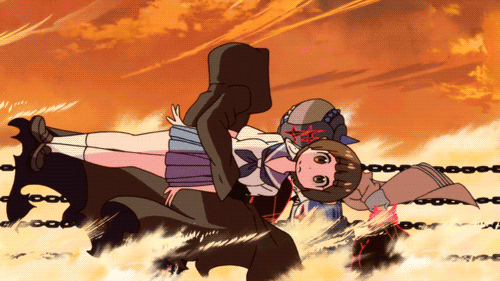Kasz216 said:
Jumpin said:
Kasz216 said:
Jumpin said:
thetonestarr said:
Anybody saying piracy is most likely biased and/or uneducated on the matter.
People who pirate the games would probably not have purchased it if the game wasn't available to be pirated. |
This point has already been refuted with a simple comparison to the collapse of the music industry due to piracy. perhaps you're the one who needs the education.
|
Except you know... your chart actually lacks al context... because it's revenue.
CD prices have been STEADILY declining, and Digital media prices songs individually.
The "Collapse" of industry is because you can pay 99 cents a piece for a few songs you like instead of having to dole out 25.99 for a CD with 15 tracks on it.
Most people only ever wanted the hits, but were forced to buy entire albums.
Now people can JUST get the hits, and cut out the other 10-13 songs.
In otherwords, people are buying the 3 Katie Perry Singles instead of the entire Katie Perry.
Not counting things like Spotify.
|
Of course my chart showed a decline in revenue. The very DEFINITION of a market collapse IS a sharp decline in revenue.
If CD prices were declining, it was because piracy undermined their existing market value - and therefore piracy damaged their market value.
If piracy was not a factor in the collapse of the music industry, then explain why the market collapse began at the moment napster was introduced?
Piracy was at the core of the market collapse. Piracy did a great deal of harm to the music industry.
|
That'd be a pretty hard thing to explain, since that didn't happen.
The market spiked to it's highest levels after Napster was introduced in 1999... then later fell.
If you look at your chart you'd notice CD sales don't fall untill after Napster shut down.
What did fall off, is what had been falling off.... Cassette sales. Your saying Piracy killed off cassett tapes.
Just like in.... 1994... where revenue was on a huge downfall as CD sales weren't building up fast enough to make up for cassette loses.
That is until that slide stopped around 1996-1997 when CD's suddenly got a lot more popular....
Now what happened in 1996-1997?
That would be popularization of the MP3, and ripping of Discs. Huh.
So, for some more accurate questions
Why did CD sales suddenly get bigger once Mp3's became popular? CD sales being fairly stagnant before.
Why did CD sales, reach new heights during Napsters initial release?
Why did CD sales seem to not drop dramitcally until Itunes became popular?
|
Actually, I don't see CD sales starting to fall only after Napster shut down in July 2001. What I see is CD sales falling as Napster starts to gain millions of users in 2000; and a sharp decline during 2001 when the Napster userbase peaked. Napster was introduced in 1999, but it didn't have many users until after that as this chart describes:

Also, music piracy did not end with Napster, there were increasing numbers of other programs that came out during and afterwards. Gnutella launched in 2000, Kazaa and Bit Torrent in 2001, etc...
"Now what happened in 1996-1997?"
"That would be popularization of the MP3, and ripping of Discs. Huh."
This is another example of how piracy in a segment market, caused that segment to stop purchasing music, and therefore negatively impacted the industry. When more widely accessible methods of piracy came along with Napster, then a greater segment followed, and the market collapsed.
CDs were also not "fairly stagnant before", and the original chart I posted clearly shows the market was trending upwards from the 1980's until 2000 when piracy began to grow. The market continued to collapse as piracy grew, and you haven't disproven that.
It is a well established fact that piracy caused the collapse of the music industry. Piracy does majorly hurt sales whether you want to believe it does or not.
Piracy does in fact cause a lot of damage to the industry. The only reason people want to try and argue that it doesn't is so they can feel justified in taking shit for free.






























































